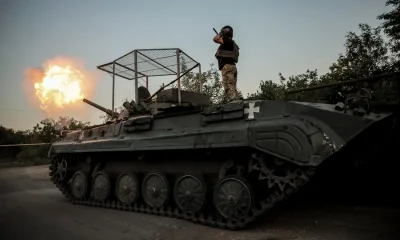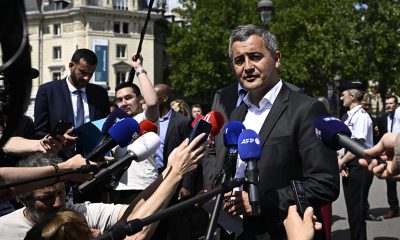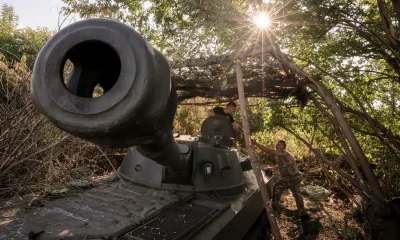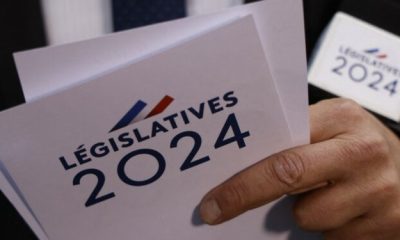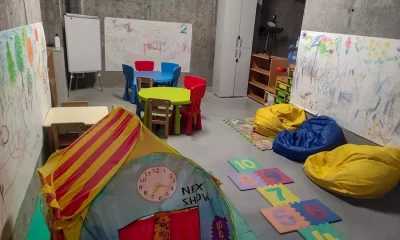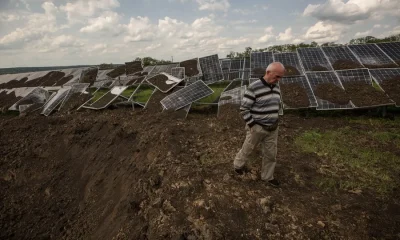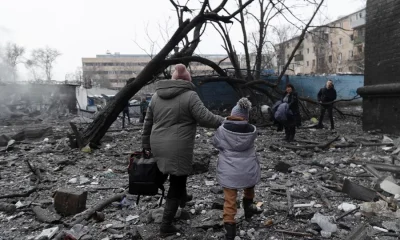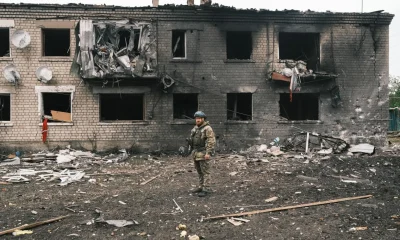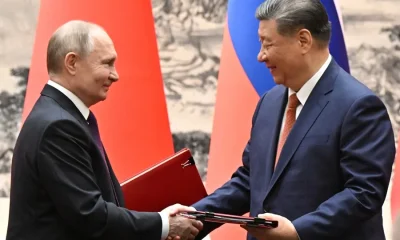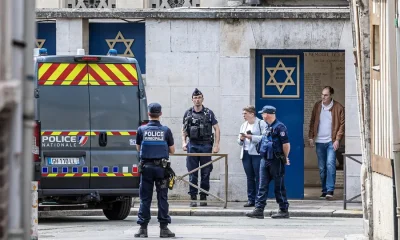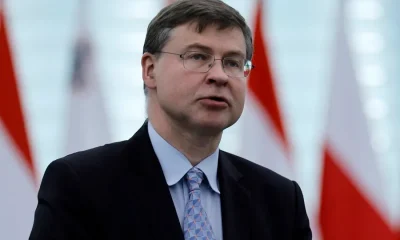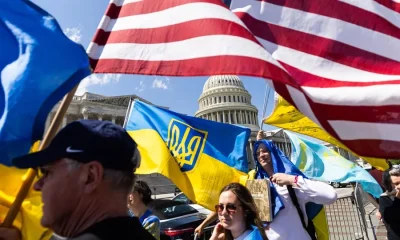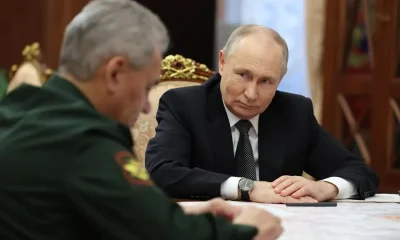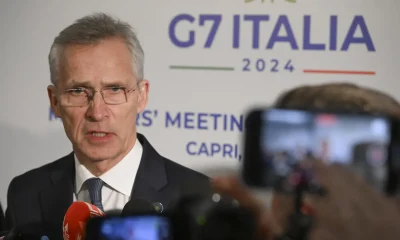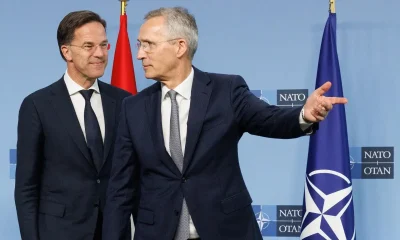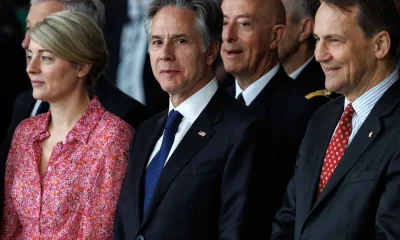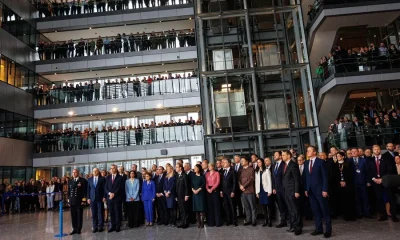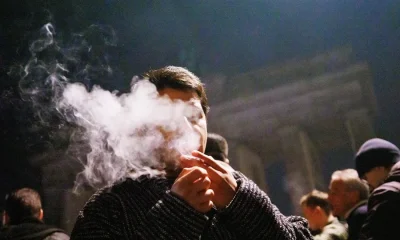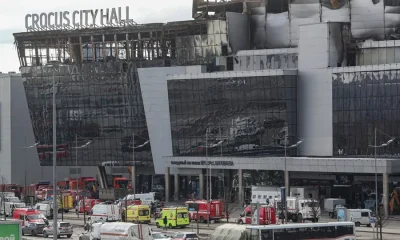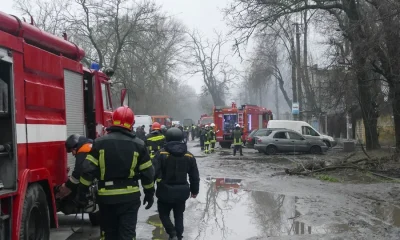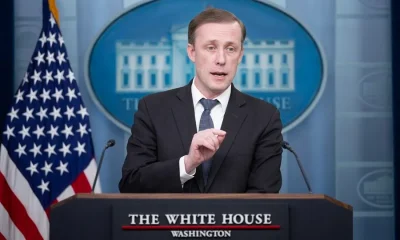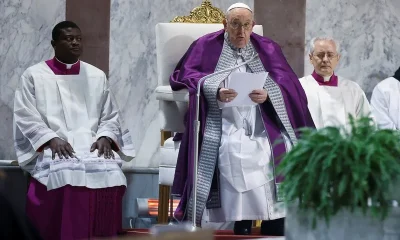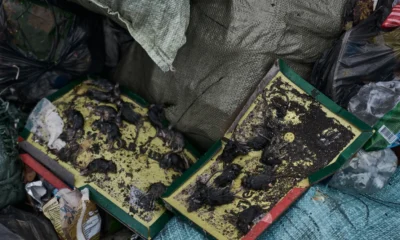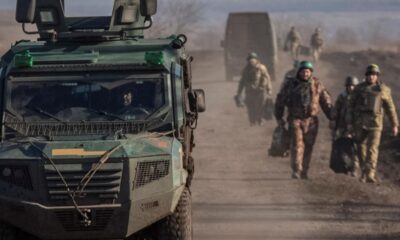International
Germany, France and Poland commit to intensifying the supply of weapons to Ukraine
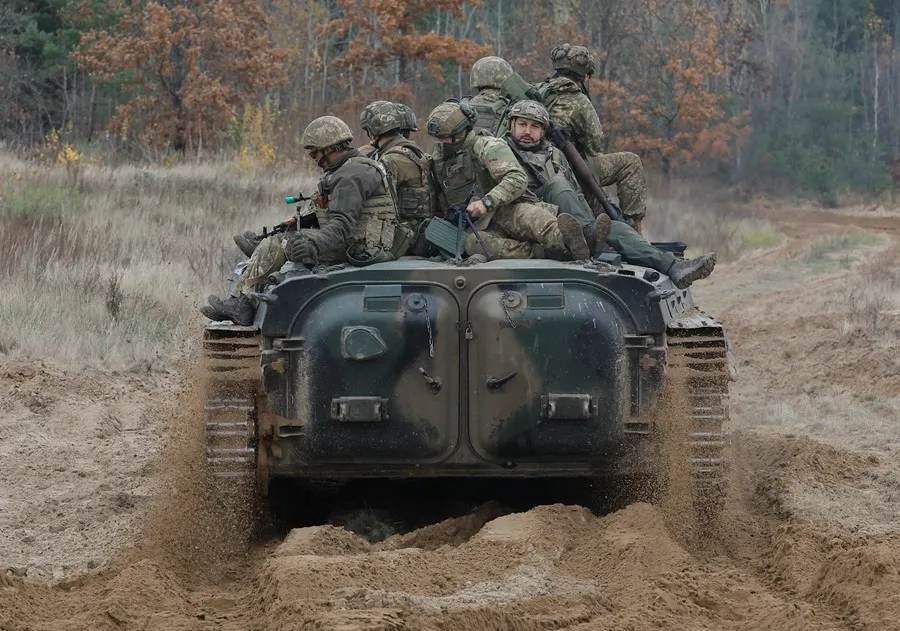
German Foreign Minister Olaf Scholz; French President Emmanuel Macron and Polish Prime Minister Donald Tusk pledged this Friday to intensify their military support for Ukraine with a new coalition of long-range missiles and the purchase of more ammunition.
“We will not give up on our support,” Scholz stressed at the end of the meeting in the Weimar Triangle format.
Scholz also highlighted the agreement of the European Union (EU) to promote a specific military support fund to Ukraine endowed with 5 billion euros for this year, the reinforcement of the community training mission of Ukrainian soldiers, as well as the decision to use the interests of Russian assets frozen in Europe to support the purchase of weapons for Kiev.
Next Tuesday, a new meeting of the Contact Group for the Defense of Ukraine will be held at the US air base in Ramstein, in Germany, in which that new coalition of long-range missiles will be proposed, although the German Chancellor himself has categorically refused to send Taurus missiles to Ukraine, which have the ability to hit targets 500 kilometers away.
With respect to the Taurus, there are differences even within the German Government where part of the Greens and the Liberal Party (FDP) are in favor of sending it, despite the rejection of it by the Social Democratic Party (SPD) and Scholz.
On two occasions the opposition has taken advantage of the differences within the Government to try, unsuccessfully, to carry out a resolution in Parliament asking for the sending of the Taurus.
Nevertheless, the government coalition adopted a resolution in the Lower House in February in which it calls for “wide-ranging weapons systems and ammunition” for Ukraine.
Scholz maintains that these weapons cannot be used without the participation of German soldiers and has asked not to divert attention with a debate about a single type of weapons.
Macron pointed out that the coalition is open to all countries, as well as the many others that exist for the supply of F16 fighters and drones for Ukraine, for example.
The French president, who reiterated that the security and future of Europe is at stake due to the Russian war in Ukraine, explained that the three countries support the Czech initiative, which at the Munich Security Conference in February announced that it has found up to 800,000 NATO standard munitions that can be sent to Ukraine if the necessary funding is found.
At the moment it has commitments for 500,000 pieces of ammunition as a result of the initiative, which Germany had already joined.
Macron said that the three countries will work with the industry in Europe and in Ukraine to promote the production of ammunition in the territory of the invaded country.
The French president pointed out that boosting European production is a priority, but that, “if this is not possible fast enough or in the necessary volume, we will be able to mobilize funding to buy ammunition and military equipment in other countries to support Ukraine.”
The Polish Prime Minister, Donald Tusk, pointed out in turn that it is very important for him that the Weimar Triangle has been reactivated and that the trilateral meeting has served to make concrete decisions.
He maintained that this shows that “the malicious rumors, the disputes or differences between the capitals are not true,” he said in reference to the differences between the French president and Scholz on some issues such as the possible sending of European or NATO troops to Ukraine.
“Today we have spoken with one voice, especially about the security of our continent and our countries.”
Tusk informed his two counterparts about his recent visit to Washington and the climate in the US capital in the context of the presidential elections, in which Republican candidate and former President Donald Trump aspires to return to the White House.
Trump has already threatened not to help Europe if the Old Continent does not pay for its defense and would also have told the Hungarian president, Viktor Orbán, that he will not give “a penny” to Ukraine if he becomes president of the United States again.
“The three of us are aware that we Europeans have the responsibility for transatlantic relations and our future, and that can’t be changed by anyone, no matter what happens politically,” he said.
International
U.S. Senate Rejects Budget, Bringing Government Closer to Shutdown Amid DHS Dispute

The U.S. Senate voted on Thursday against a budget proposal in a move aimed at pressuring changes at the Department of Homeland Security (DHS), following the killing of two civilians during a deployment of immigration agents in Minneapolis.
All Senate Democrats and seven Republican lawmakers voted against the bill, which requires 60 votes to advance, pushing the country closer to a partial government shutdown that would cut funding for several agencies, including the Pentagon and the Department of Health.
The rejection came as Senate leaders and the White House continue negotiations on a separate funding package for DHS that would allow reforms to the agency. Proposed measures include banning Immigration and Customs Enforcement (ICE) agents from wearing face coverings and requiring them to use body-worn cameras during operations.
The vote took place just hours after President Donald Trump said he was “close” to reaching an agreement with Democrats and did not believe the federal government would face another shutdown, following last year’s record stoppage.
“I don’t think the Democrats want a shutdown either, so we’ll work in a bipartisan way to avoid it. Hopefully, there will be no government shutdown. We’re working on that right now,” Trump said during a Cabinet meeting at the White House.
International
Trump Says Putin Agreed to One-Week Halt in Attacks on Ukraine Amid Extreme Cold

U.S. President Donald Trump said on Thursday that he secured a commitment from Russian President Vladimir Putinto halt attacks against Ukraine for one week, citing extreme weather conditions affecting the region.
“Because of the extreme cold (…) I personally asked Putin not to attack Kyiv or other cities and towns for a week. And he agreed. He was very pleasant,” Trump said during a Cabinet meeting broadcast by the White House.
Trump acknowledged that several advisers had questioned the decision to make the call.
“A lot of people told me not to waste the call because they wouldn’t agree. And he accepted. And we’re very happy they did, because they don’t need missiles hitting their towns and cities,” the president said.
According to Trump, Ukrainian authorities reacted with surprise to the announcement but welcomed the possibility of a temporary ceasefire.
“It’s extraordinarily cold, record cold (…) They say they’ve never experienced cold like this,” he added.
Ukrainian President Volodymyr Zelensky later commented on the announcement, expressing hope that the agreement would be honored.
International
Storm Kristin Kills Five in Portugal, Leaves Nearly 500,000 Without Power

Storm Kristin, which battered Portugal with heavy rain and strong winds early Wednesday, has left at least five people dead, while nearly half a million residents remained without electricity as of Thursday, according to updated figures from authorities.
The revised death toll was confirmed to AFP by a spokesperson for the National Emergency and Civil Protection Authority (ANPEC). On Wednesday, the agency had reported four fatalities.
Meanwhile, E-Redes, the country’s electricity distribution network operator, said that around 450,000 customers were still without power, particularly in central Portugal.
Emergency services responded to approximately 1,500 incidents between midnight and 8:00 a.m. local time on Wednesday, as the storm caused widespread disruptions.
The Portuguese government described Kristin as an “extreme weather event” that inflicted significant damage across several regions of the country. At the height of the storm, as many as 850,000 households and institutions lost electricity during the early hours of Wednesday.
Several municipalities ordered the closure of schools, many of which remained shut on Thursday due to ongoing adverse conditions.
Ricardo Costa, regional deputy commander of the Leiria Fire Brigade, said residents continue to seek assistance as rainfall persists.
“Even though the rain is not extremely intense, it is causing extensive damage to homes,” he noted.
In Figueira da Foz, a coastal city in central Portugal, strong winds toppled a giant Ferris wheel, underscoring the severity of the storm.
-

 Central America5 days ago
Central America5 days agoGuatemala seizes over a ton of cocaine hidden in flour at Pacific port
-

 Central America3 days ago
Central America3 days agoGuatemala Police Arrest Prison Guard Caught in the Act of Extortion
-

 Central America3 days ago
Central America3 days agoHonduras swears in conservative president Asfura after disputed election
-

 International4 days ago
International4 days agoHistoric snowstorm paralyzes Toronto after 60 centimeters of snow
-

 Central America3 days ago
Central America3 days agoBukele leads public trust rankings as UCA survey highlights gains in security
-

 International2 days ago
International2 days agoFootball Fan Killed in Clashes After Colombian League Match
-

 International4 days ago
International4 days agoSpain’s irregular migrant population rises to 840,000, study finds
-

 Central America2 days ago
Central America2 days agoGuatemala President Says Starlink Terminal Found Inside Prison
-

 International3 days ago
International3 days agoDoomsday clock moves to 85 seconds before midnight amid rising global risks
-

 International3 days ago
International3 days agoWinter Storm Fern Leaves 30 Dead and Over One Million Without Power Across the U.S.
-

 Sin categoría3 days ago
Sin categoría3 days agoEight Killed in Series of Armed Attacks in Ecuador’s Manabí Province
-

 International3 days ago
International3 days agoSpain approves plan to regularize up to 500,000 migrants in Historic Shift
-

 International1 day ago
International1 day agoU.S. Senate Rejects Budget, Bringing Government Closer to Shutdown Amid DHS Dispute
-

 International5 days ago
International5 days agoRights group says nearly 6,000 killed in Iran protest crackdown
-

 Sin categoría3 days ago
Sin categoría3 days agoEl Salvador Launches Fourth Year of Ocean Mission to Protect Marine Ecosystems
-

 International2 days ago
International2 days agoRubio Says U.S. Could Participate in Follow-Up Russia-Ukraine Talks
-

 International2 days ago
International2 days agoMissing Spanish Sailor Rescued After 11 Days Adrift in Mediterranean
-

 Central America8 hours ago
Central America8 hours agoPanama Supreme Court Strikes Down Panama Ports Concession as Unconstitutional
-

 International5 days ago
International5 days agoVenezuela frees at least 80 political prisoners, NGO says
-

 International5 days ago
International5 days agoEU launches new probe into X over AI-generated fake nude images
-

 International1 day ago
International1 day agoStorm Kristin Kills Five in Portugal, Leaves Nearly 500,000 Without Power
-

 Central America8 hours ago
Central America8 hours agoU.S. and Guatemala Sign Trade Deal Granting Zero Tariffs to Most Exports
-

 International1 day ago
International1 day agoTrump Says Putin Agreed to One-Week Halt in Attacks on Ukraine Amid Extreme Cold
-

 International1 day ago
International1 day agoMan Arrested After Vehicle Crashes Into Jewish Institution in Brooklyn
-

 International5 days ago
International5 days agoFrance debates ban on social media for children under 15
-

 International5 days ago
International5 days agoSevere winter storm grips U.S., leaves multiple dead as extreme cold persists

























